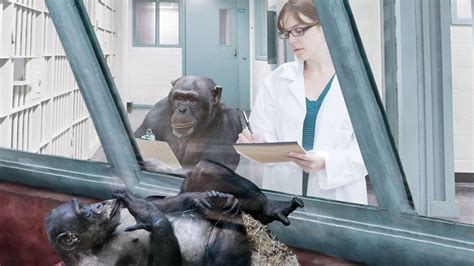Have you ever thought that peeing could be contagious? Well, in the world of chimpanzees, it turns out that it is! Picture this: a sanctuary in Japan where a group of chimpanzees displayed an unexpected bathroom behavior – they all decided to go at the same time. This intriguing phenomenon caught the attention of researchers and sparked a study on contagious urination among these fascinating animals.
Shinya Yamamoto, an animal behavior scientist at Kyoto University in Japan, described this study as groundbreaking. “It’s the first study to investigate contagious urination in animals, including humans,” he exclaimed with enthusiasm. It all started when Ena Onishi, also from Kyoto University and studying animal behavior, noticed a peculiar trend among captive chimpanzees – they tended to pee simultaneously. This observation led her to explore further whether urination could be a socially influenced behavior among chimps.
Ena Onishi and her team dedicated over 600 hours observing 20 captive chimpanzees living in a wildlife sanctuary. During this time, they documented more than 1,300 instances of urination among the chimps. Their meticulous analysis unveiled an exciting discovery – these primates were indeed more likely to pee together. What’s even more intriguing is that if one chimp initiated urinating, its nearby companions would often follow suit.
Unveiling Surprising Findings
The researchers disclosed their unexpected findings in Current Biology on January 20th. Contrary to expectations, social closeness did not significantly influence this copycat behavior during peeing sessions as it typically does during grooming or yawning rituals. Surprisingly, rank within the group played a pivotal role. Lower-ranking individuals were particularly prone to mimic their peers’ urinary habits.
“This was an unexpected and fascinating result,” remarked Ena Onishi on their discovery about hierarchical influences on urination patterns among chimpanzees. The team postulated that higher-ranking individuals might have the power to influence others’ behaviors or that lower-ranking chimps exhibit increased vigilance towards social interactions as part of survival instincts.
Expert Insights
Zanna Clay from Durham University commented on this unique research endeavor by emphasizing its promising nature for understanding chimp behavior better but stressed the need for further in-depth investigations into its significance and implications.
“It’s a promising and preliminary step,” Zanna said enthusiastically while highlighting the importance of delving deeper into how social factors like sex, familiarity, and age impact contagious urination among chimpanzees across various groups.
Moving forward, Ena Onishi expressed her team’s eagerness to expand their research beyond captive settings by studying wild chimpanzee populations. They aim to unravel how different social dynamics may affect this intriguing phenomenon across various groups and species like bonobos for comprehensive comparative insights.
As we marvel at these remarkable revelations about our closest primate relatives’ quirky yet socially nuanced behaviors when nature calls en masse., one thing remains clear – there’s still so much left unexplored in the intricate world of animal behaviors.









Leave feedback about this